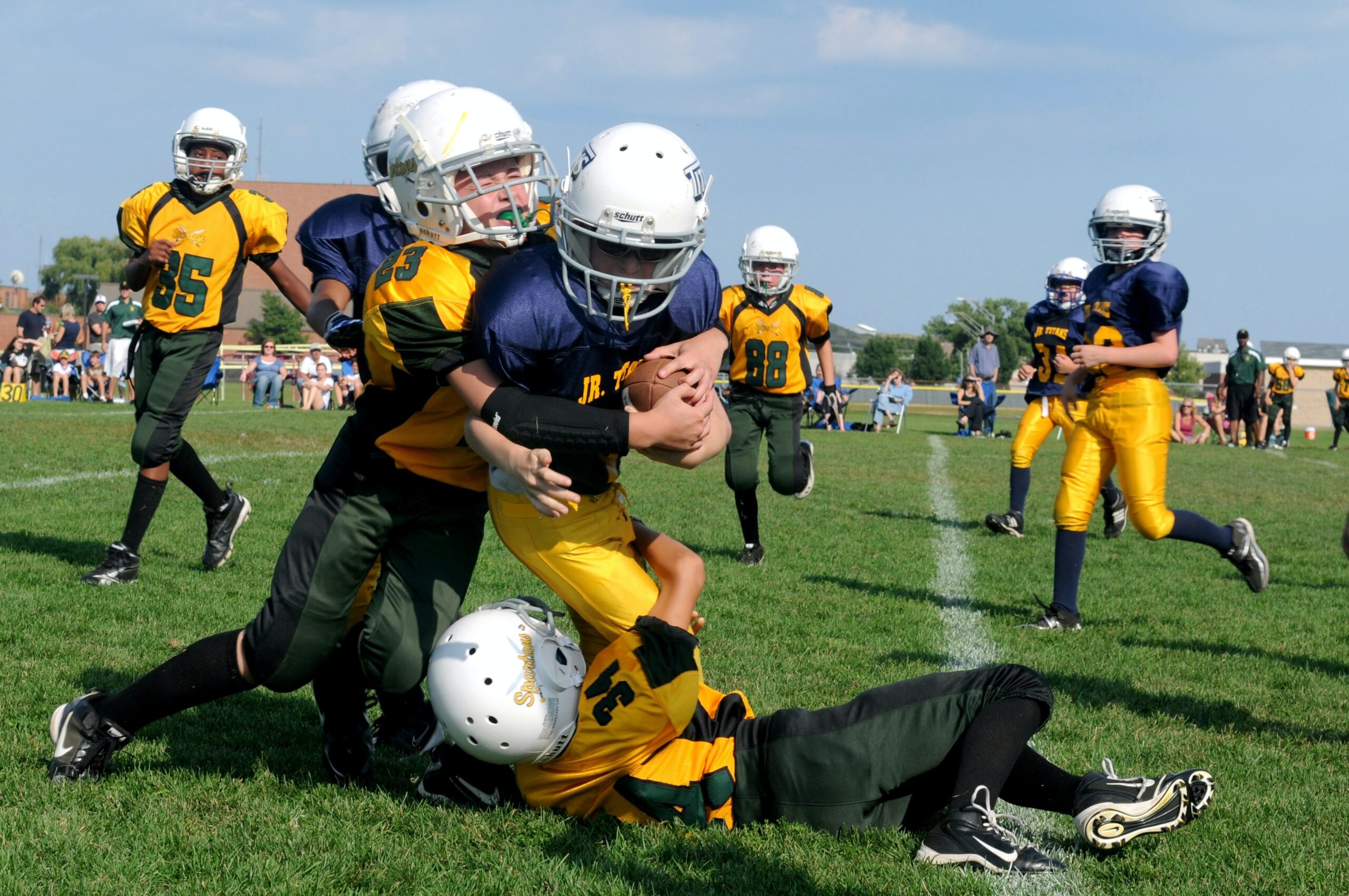
05 Oct The Cognitive Impact of Concussions in Youth Sports
Youth sports offer numerous benefits, including an opportunity to improve physical fitness, practice teamwork, develop social skills, and expedite personal growth. However, with these advantages come inherent risks, one of which is the potential for concussions. Concussions are mild traumatic brain injuries that require prompt attention and proper management.
A concussion occurs when a blow or jolt to the head disrupts normal brain function. This can happen in various sports, such as football, soccer, basketball, and even non-contact sports like gymnastics and cheerleading. It’s crucial to remember that concussions are not always accompanied by loss of consciousness; they can occur without any visible signs of injury.
Concussion Symptoms
- Physical Symptoms:
- Headache or pressure in the head
- Nausea or vomiting
- Dizziness or balance problems
- Blurred or double vision
- Sensitivity to light or noise
- Cognitive Symptoms:
- Confusion or feeling “foggy”
- Memory problems, including difficulty recalling events before or after the injury
- Difficulty concentrating or making decisions
- Emotional and Behavioral Symptoms:
- Irritability or mood swings
- Anxiety or depression
- Changes in sleep patterns (e.g., sleeping more or less than usual)
- Loss of Consciousness or Altered Consciousness: Although not always present, this is a clear indicator of a concussion.
If you suspect a concussion, the athlete should be immediately removed from the game or practice. Continuing to play can exacerbate the injury and prolong recovery. A healthcare professional with experience in concussion management should evaluate the athlete. They can perform a thorough examination and, if necessary, recommend further tests like a CT scan or MRI.
Cognitive Impacts of Concussions
Concussions can have a significant impact on cognitive function, especially if not managed properly. Some potential cognitive effects include:
- Memory and Concentration: Difficulty with short-term memory, attention, and concentration can be common after a concussion.
- Processing Speed: The speed at which an individual can absorb and respond to information may be impaired.
- Problem-Solving and Decision-Making: Concussions can affect an individual’s ability to think critically and make decisions.
- Emotional Regulation: Mood swings, irritability, and emotional instability can be a result of concussion-related changes in brain function.
Managing Cognitive Impacts of Concussions
Once a concussion has been diagnosed, it’s crucial to implement a comprehensive plan for managing its cognitive effects. This involves a multidisciplinary approach that may include healthcare professionals, educators, coaches, and parents.
- Cognitive Rest and Gradual Return to Activity: After a concussion, it’s imperative to allow the brain to heal. This means minimizing activities that tax cognitive function, such as reading, screen time, and even classroom work. Gradually reintroducing these activities as symptoms improve can help the brain adapt and recover.
- Individualized Academic Accommodations: Schools play a pivotal role in supporting students recovering from concussions. Educators should be informed about the injury and its potential impact on learning. Implementing accommodations like extended time for assignments, reduced workload, and flexible deadlines can help ease the transition back to academic activities.
- Cognitive Rehabilitation: For more severe cases or when cognitive difficulties persist, a structured rehabilitation program may be recommended. This can involve specific exercises and activities designed to improve memory, attention, and problem-solving skills. Working with a trained therapist can be instrumental in the recovery process.
- Emotional and Psychological Support: Concussions can often lead to emotional challenges, including increased stress, anxiety, and mood swings. Providing a supportive environment where athletes can express their feelings and concerns is crucial. Seeking the assistance of a mental health professional can also be beneficial for addressing any emotional impacts.
- Gradual Return to Sports: Reintegration into sports activities should be approached with caution and under the guidance of a healthcare professional. The athlete should not return to full-contact play until they have fully recovered and received clearance from a medical expert.
- Long-Term Follow-Up: Some cognitive impacts may persist beyond the initial recovery period. Long-term follow-up with healthcare professionals is crucial to monitor progress and address any ongoing challenges.
Managing the cognitive impacts of concussions is a critical aspect of the recovery process. With the right approach, including cognitive rest, individualized accommodations, rehabilitation, and emotional support, individuals can regain their cognitive function and return to their normal activities. By prioritizing the well-being and long-term cognitive health of young athletes, we can help them continue to excel both in sports and in their academic pursuits.
Sources
Yale Medicine, What Parents Need to Know About Concussions in Kids’ Sports
Open Access Journal of Sports Medicine, The cognitive effects and decrements following concussion
Concussion Alliance, Cognitive Dysfunction
Northwestern University, How Counseling Can Help After a Concussion

